Aswan, often hailed as the gateway to Nubia, is one of Egypt’s most enchanting cities. Nestled along the Nile River, this tranquil city captivates travelers with its unique blend of ancient history, breathtaking landscapes, and vibrant Nubian culture. Whether visiting to explore the wonders of ancient temples, to relax along the riverbanks, or to immerse yourself in the local culture, Aswan has something for everyone. This city guide provides a comprehensive overview of Aswan, from its rich historical attractions to its modern-day charm. It offers travelers a complete insight into what makes Aswan a must-see destination in Egypt.
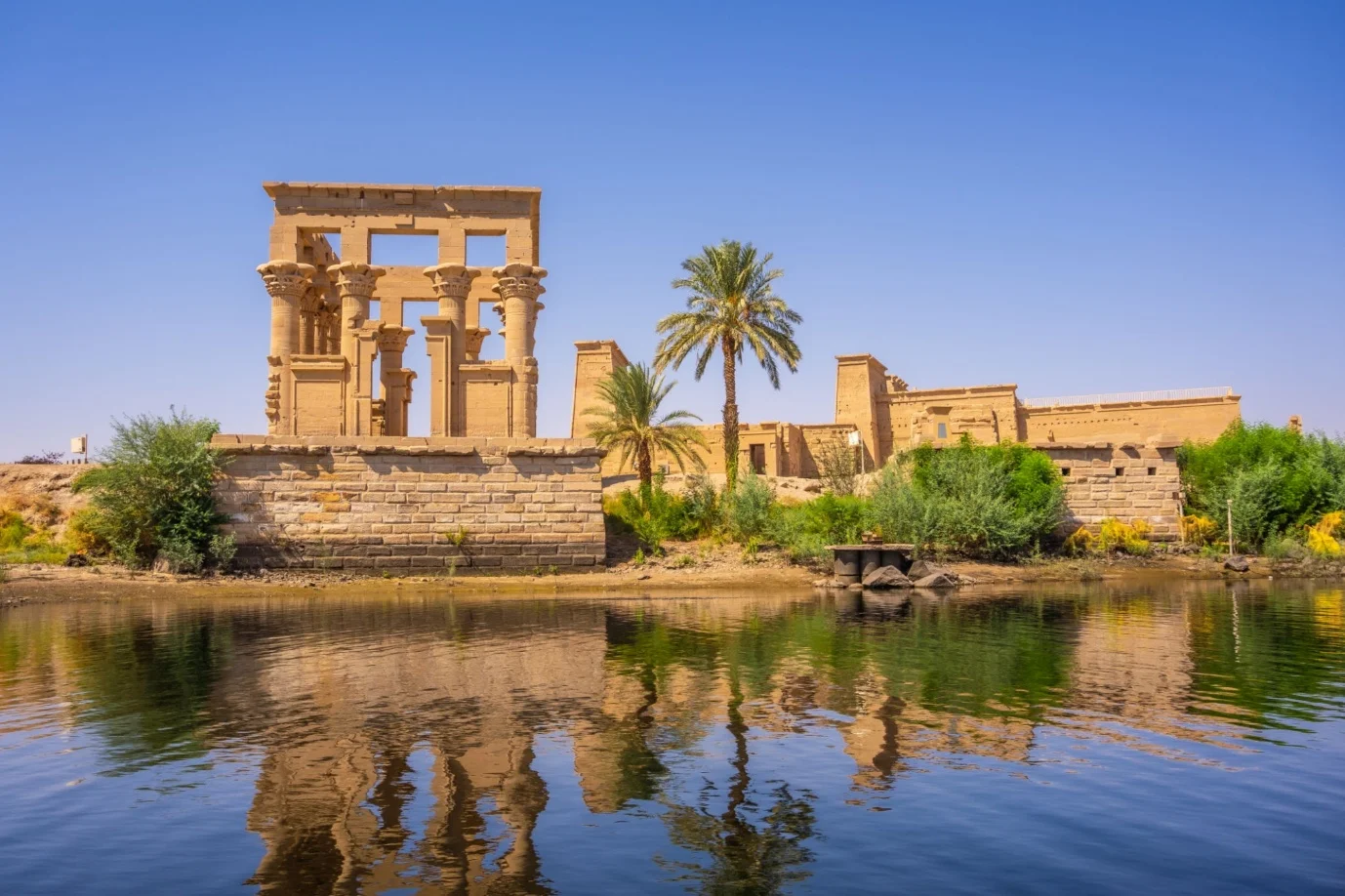
Table of Contents
ToggleLocation and Setting
Aswan lies in the southern part of Egypt, about 870 kilometers south of Cairo, along one of the most picturesque stretches of the Nile. Its proximity to Sudan makes it an important cultural crossroads, blending Egyptian and Nubian influences.
Unlike Cairo’s bustling atmosphere, Aswan offers a calm, relaxed pace of life, allowing visitors to slow down and enjoy the area’s natural beauty. The city’s setting along the Nile, surrounded by desert landscapes and dotted with lush islands, creates an idyllic backdrop for any traveler.
Historical Significance
Aswan has immense historical significance in Egypt, dating back thousands of years. Once known as Swenett, the city served as Egypt’s ancient southern border and was the main trade point with Africa.
Aswan is home to numerous Pharaonic-era relics, including the world-famous Temple of Philae, dedicated to the goddess Isis. It also served as a strategic military location and a significant granite quarry, supplying the stone for many of Egypt’s iconic monuments, including the obelisks.
The city’s long-standing importance is evidenced by its role as a gateway to Nubia. Several Nubian temples and artifacts can be explored within and around Aswan. Today, Aswan retains its cultural richness and offers a window into the fascinating history of ancient Egypt.
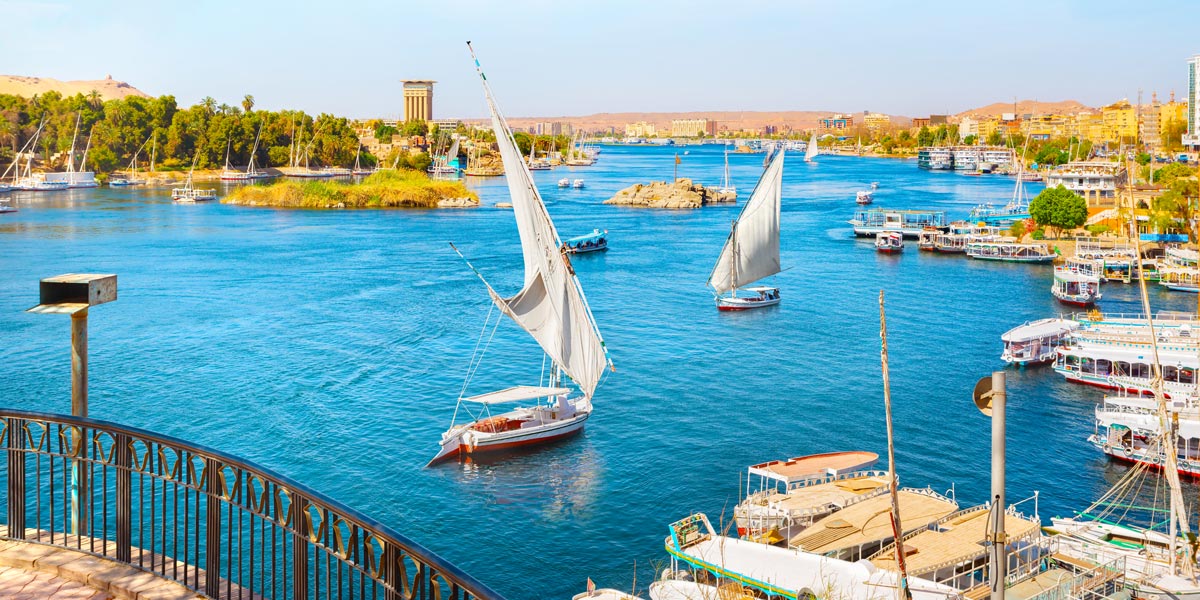
Key Attractions
Philae Temple:
This majestic temple complex is one of Aswan’s crowning jewels. Located on Agilkia Island, the Philae Temple was initially situated on Philae Island before it was relocated in the 1960s to protect it from rising Nile waters. The temple was created for the goddess Isis and features beautifully preserved reliefs and columns that showcase Egypt’s religious history. A nighttime visit allows travelers to experience the temple’s Sound and Light Show, adding a magical touch to the experience.
The Unfinished Obelisk:
A visit to the Unfinished Obelisk offers insight into ancient Egypt’s stone-carving techniques. This massive granite structure was intended to be the most giant obelisk ever erected. However, it was abandoned due to a flaw in the stone. The obelisk shows visitors the skill and effort required to construct Egypt’s monumental structures.
Aswan High Dam:
Completed in 1970, the Aswan High Dam is a modern marvel that transformed Egypt’s economy by controlling the annual flooding of the Nile. This colossal structure created Lake Nasser, one of the world’s largest artificial lakes. Visitors can tour the dam to learn about its significant impact on Egypt’s agriculture and power generation.
Elephantine Island:
Steeped in ancient history, Elephantine Island is one of Aswan’s oldest inhabited areas. During Pharaonic times, it was a center of trade and military operations. Today, it houses a Nubian village, ancient temples, and the Aswan Museum, making it a cultural and archaeological treasure.
Nubian Museum:
The Nubian Museum in Aswan is a must-see for those interested in Nubian heritage. This museum showcases Nubia’s history, culture, and lifestyle, with displays ranging from prehistoric artifacts to the recent relocation of Nubian people due to the construction of the Aswan High Dam. The museum’s exhibits offer a profound understanding of the Nubian people’s contribution to Egypt’s history.
Abu Simbel Temples:
Although located about 280 kilometers south of Aswan, the Abu Simbel Temples are often included in a visit to the city. These two massive rock temples, built by Pharaoh Ramses II, are an astonishing feat of ancient engineering. The temples were resituated in the 1960s to avoid being submerged by Lake Nasser. The colossal statues of Ramses II guard the entrance, a highlight for any visitor.
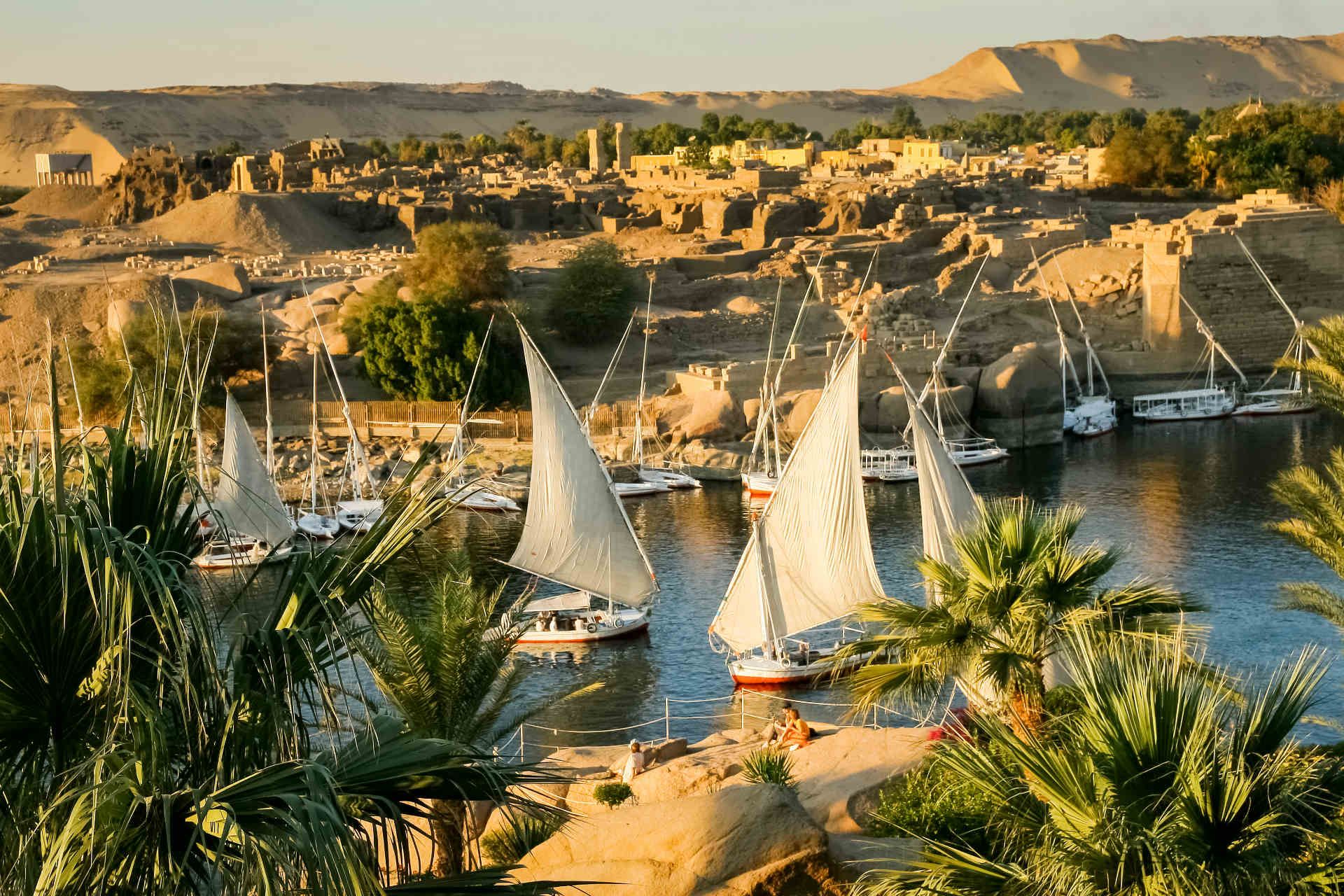
Culture and Local Life
Aswan offers visitors a unique opportunity to experience Nubian culture, distinct from the rest of Egypt. The Nubian people are known for their vibrant colors, warm hospitality, and a solid connection to their traditions. A visit to a Nubian village is a popular tourist experience, where you can see traditional homes painted in bright blues and greens enjoy local music, and sample Nubian cuisine, which often includes dishes made with fresh river fish, spices, and vegetables.
Aswan’s markets are bustling hubs of local life, where traders sell everything from spices and textiles to handcrafted jewelry and souvenirs. The Aswan Souq is a lively and colorful marketplace where travelers can find unique items, such as handmade Nubian baskets, scarabs, and local spices like saffron and cinnamon.
The Best Time to Visit
The ideal time to visit Aswan is during the cooler months, between October and April. During these months, the weather is mild and pleasant, perfect for exploring the city’s outdoor attractions and taking boat trips along the Nile. The summer months (May to September) may be hot, with temperatures usually exceeding 40°C (104°F), making outdoor activities more challenging.
Nile River Cruises
A Nile cruise is one of the most popular ways to experience Aswan. Many travelers choose to sail from Aswan to Luxor, or vice versa, stopping at key historical sites along the way, such as Kom Ombo Temple and Edfu Temple. These cruises offer a luxurious way to travel through Egypt’s ancient history while enjoying the scenic beauty of the Nile. Felucca rides, traditional wooden sailboats, are also a popular way to explore the Nile’s tranquil waters around Aswan.
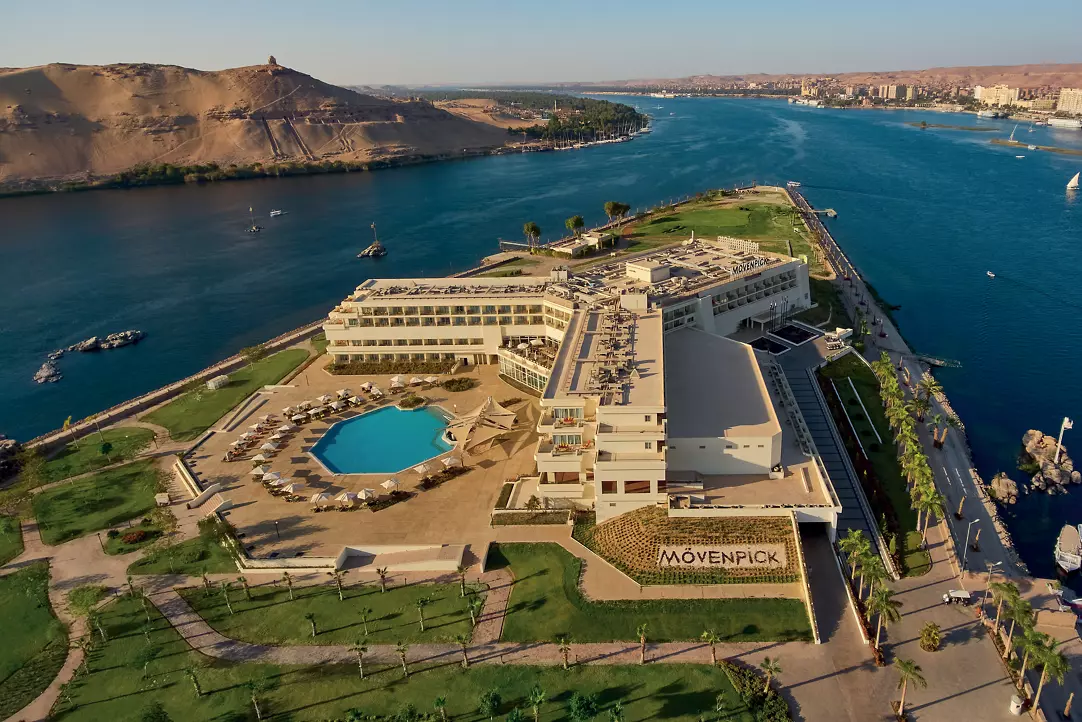
Local Cuisine and Dining
Aswan offers a delightful array of local cuisine, heavily influenced by Nubian traditions and the abundance of fresh ingredients from the Nile. Popular dishes include feseekh (fermented fish), molokhia (green soup made from jute leaves), and grilled meats. Freshly caught fish from the Nile is a staple in Aswan’s restaurants, often grilled or fried with local spices. The city has many dining options, from street food stalls to more upscale restaurants offering stunning river views.
One of the unique aspects of dining in Aswan is the ability to enjoy meals in traditional Nubian settings. Many restaurants feature Nubian-inspired decor and offer local music performances, allowing visitors to enjoy a cultural experience while savoring the region’s flavors.
Getting Around Aswan
Aswan is a relatively small city, making it easy to explore on foot. However, there are several other ways to get around, including taxis, local minibusses, and feluccas. Feluccas, the traditional sailboats, are a charming way to navigate the Nile and visit the islands around Aswan. Organized tours and buses are available for longer trips, such as a visit to Abu Simbel.
Accommodation Options
Aswan offers a range of accommodation options, from luxury resorts to budget-friendly guesthouses. Many hotels are situated along the Nile, offering stunning river views. For those looking for a more immersive experience, staying in a Nubian hotel is an excellent option. It provides insight into the Nubian people’s local culture and warm hospitality.
Tips for Travelers
- Dress Modestly: Aswan is a conservative city, and it’s respectful to dress modestly, especially when visiting religious or historical sites.
- Hydration: The desert climate can be arid, so staying hydrated is essential, particularly when exploring the city during the day.
- Cultural Respect: When visiting Nubian villages or local markets, be polite and ask for permission before taking photos of people or their homes.
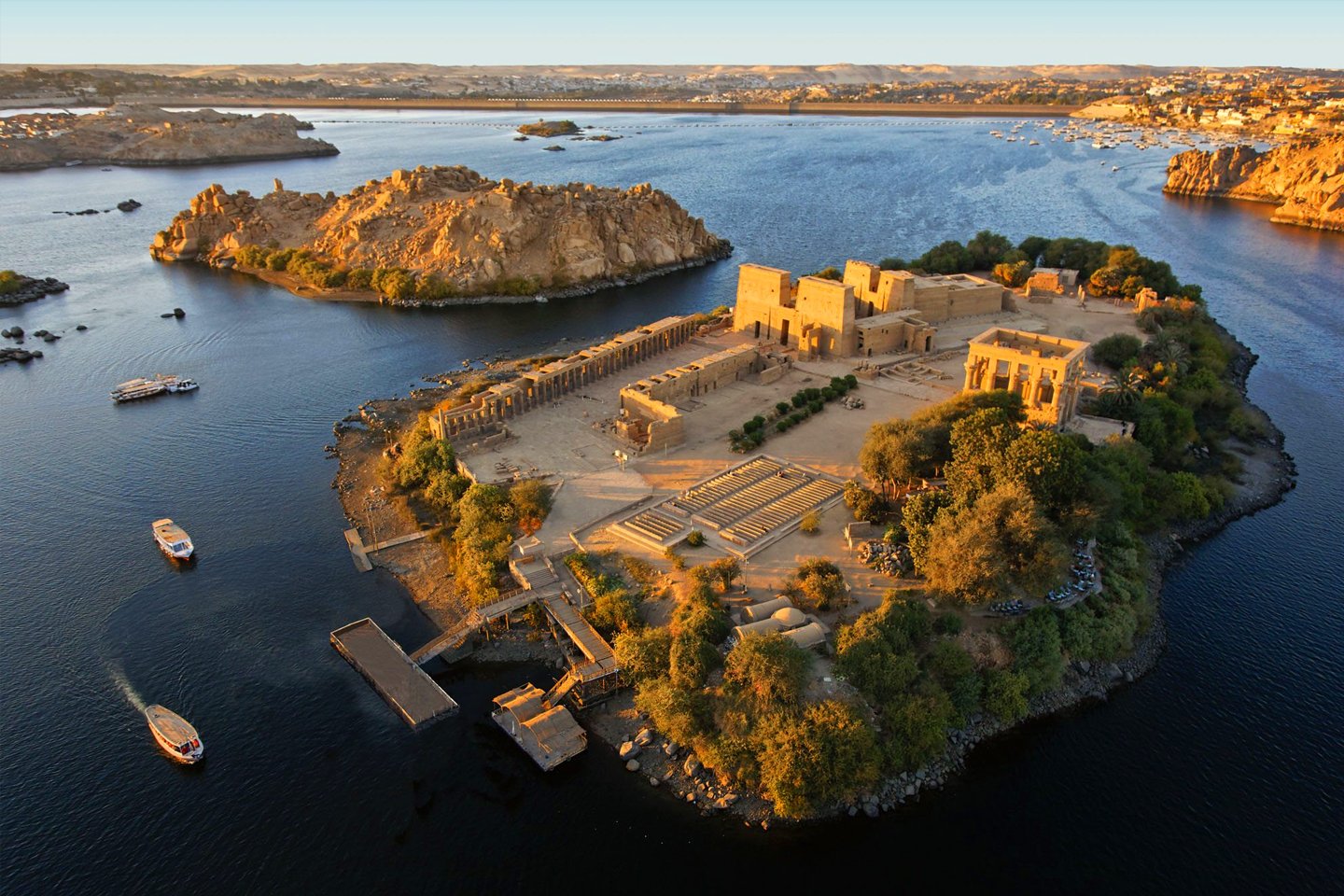
Frequently Asked Questions(FAQs):
1. What is Aswan famous for?
Aswan is famous for its historical landmarks, such as the Philae Temple, the Unfinished Obelisk, and the Aswan High Dam. It is also known for its role as the gateway to Nubia and its stunning setting along the Nile River.
2. How far is Aswan from Cairo?
Aswan is approximately 870 kilometers (540 miles) south of Cairo. You may travel between the two cities by plane (1.5 hours), train (13-15 hours), or bus.
3. What is the best way to travel to Abu Simbel from Aswan?
The best way to travel to Abu Simbel is by bus or on an organized tour. It’s a three-hour drive from Aswan, and most tours leave early in the morning to visit the temples before the day’s heat.
4. Can I take a Nile cruise from Aswan?
Many Nile River cruises start or end in Aswan, offering an unforgettable way to explore Egypt’s historical sites while sailing along the river.
5. Is Aswan safe for tourists?
Aswan is considered a safe destination for tourists. However, like any city, it is advisable to take standard precautions, such as avoiding unlit areas at night and keeping your belongings secure.
6. What is the local language in Aswan?
The official language is Arabic, but many people in the tourism industry speak English, making it easy for visitors to communicate.
